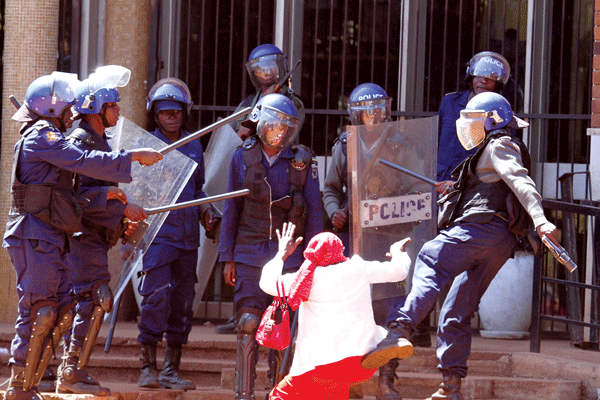In its analysis of the draft Bill, Veritas labelled it, “same old wine in same old bottle with a new label”.
“The draft Bill is not new wine in an old bottle: it is the same old wine in the same old bottle with a new label stuck on it,” said Veritas, adding that only “depressingly few” changes had been made.
“There are very few differences between the Bill and POSA – depressingly few, in fact.”
The government announced recently that it was planning to repeal the much resented POSA and replace it with a new Bill, which would ostensibly free some democratic space in the country.
“After the excited fanfare in the State-owned press about how far-reaching the Bill would be, we expected rather more than this.”
Veritas said the Bill makes some cosmetic changes to the provisions of POSA: for example, “Commissioner of Police” has been changed to “Commissioner-General of Police” and “Police Force” to “Police Service”.
However, apart from these, other changes are; the title of the Bill is slightly more calming than POSA’s.
“Words have been added to sub-clause (1) to the effect that persons who are appointed as organisers of public meetings are to be regarded as conveners for the purposes of Part II of the Bill. This makes the clause a little tidier, but does nothing more,” Veritas.
Said Veritas, “Apart from what is noted above ‒ all POSA’s undemocratic features have been retained. The Police will still be entitled to ask political parties for lists of members or office-bearers who attend meetings of the parties’ committees or other structures.
“People will not be allowed to hold public gatherings without giving the police written notice: seven days’ notice in the case of processions and demonstrations, five days in the case of public meetings.”
Anyone who fails to give notice will be guilty of a criminal offence and liable to imprisonment for up to a year.
“And, perhaps out of fear that the Bill does not repeat all the undesirable features of the existing law, the drafter has omitted a clause repealing POSA ‒ so POSA will remain in force even after the Bill is enacted.”






